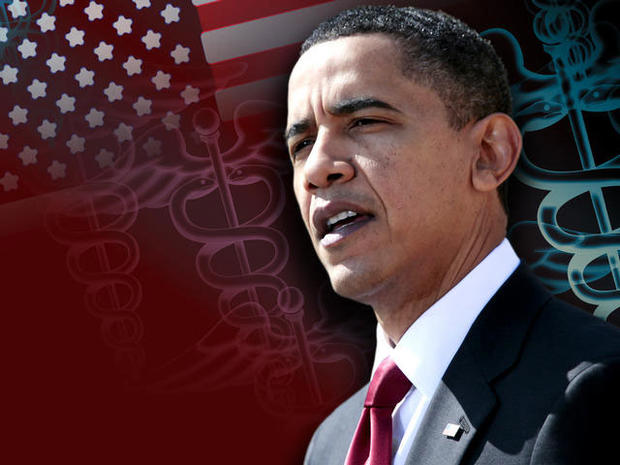AMA backs hot-button health insurance mandate
The nation's largest physician's group has affirmed its support for a key part of President Obama's health care overhaul.
At its annual meeting in Chicago, the American Medical Association (AMA) voted to maintain its official position in favor of the "individual mandate," which requires nearly all Americans to purchase health insurance. The AMA prefers the term "individual responsibility."
"The AMA has strong policy in support of covering the uninsured, and we have renewed our commitment to achieving this through individual responsibility for health insurance with assistance for those who need it," Dr. Cecil Wilson, president of the AMA, said in a statement. "The AMA's policy supporting individual responsibility has bipartisan roots, helps Americans get the care they need when they need it and ends cost shifting from those who are uninsured to those who are insured."
Boehner: 2012 elections will say "a lot" about health care systemReport: Prescription meds misuse rampant, deadly
Mitt Romney refuses to apologize for Massachusetts health care plan
The decision was made by some 500 members of the House of Delegates, which sets policy for the AMA. The vote followed intense discussions, according to delegates who took part.
"It was very emotional and it was very heated," said Dr. Bruce Malone, president of the Texas Medical Association, which opposes the mandate. "These are a large number of very intelligent people who can certainly have a democratic debate, and they did."
"I think it was very civil and I think very thoughtful," said Dr. Roland Goertz, president of the American Academy of Family Physicians, which supports the AMA position.
The individual mandate is the most controversial element of the Affordable Care Act, which became law last year but is now facing numerous legal challenges. In the most high profile case, now before the 11th Circuit Court of Appeals in Atlanta, the law is being challenged by Republican governors and attorneys general from more than two dozen states.
Malone said he is disappointed by the outcome of the vote and worries that the lack of consensus on the mandate will weaken the AMA. "Some people who strongly support the idea of 'no mandate' may drop their membership with the American Medical Association," he said.
This debate over the past two years has coincided with about a 5 percent decline in membership in the AMA, though it's not clear if support for the mandate is the reason 12,000 members quit the organization.
The outcome of the vote is an affirmation of the influence within the AMA of primary care physicians, who tend to support the mandate, over specialists, who tend to oppose it, according to Heritage Foundation health care expert Edmund Haislmaier.
Now, however, that view is not universally held.
"I do not think this is a family practice versus specialty issue," said Malone. "This is an issue of broad diversity in the 'house of medicine.'"
Goertz, a family physician in Waco, Texas, said the outcome in favor of the mandate is the right one.
"This has been debated so extensively, from every view point," he said. "If health care is going to be an important issue for Americans and the proof and the evidence shows coverage means better access, means better health decisions and better health for the public, that's what's driven our position."
